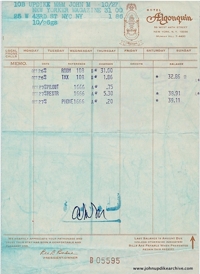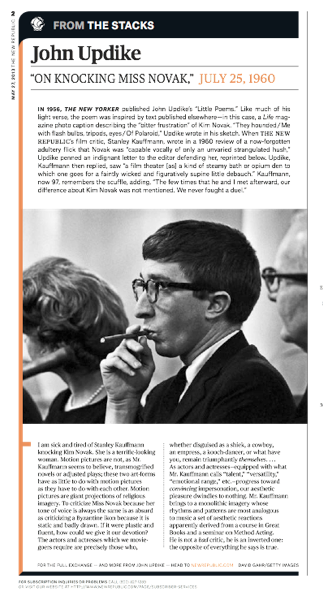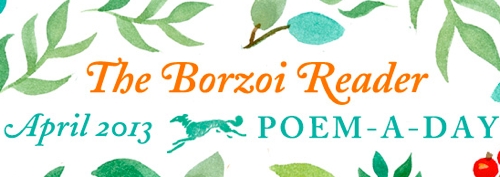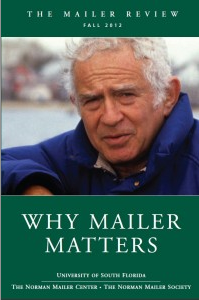 Updike’s short story “A Mild Complaint” appeared in Ian Frazier’s Humor Me: An Anthology of Funny Contemporary Writing (Plus Some Great Old Stuff, Too) (Ecco Press, 2010) with this footnote, which appears in the author’s introduction:
Updike’s short story “A Mild Complaint” appeared in Ian Frazier’s Humor Me: An Anthology of Funny Contemporary Writing (Plus Some Great Old Stuff, Too) (Ecco Press, 2010) with this footnote, which appears in the author’s introduction:
“Also, unconnected to anything, here’s a note, just FYI: The John Updike piece, “A Mild Complaint,” which concludes Part I, was famous at the New Yorker as the piece that the magazine held on to the longest before it was published. Updike wrote the piece, and the magazine bought it, in the mid-1950s, when he was a young man. For inscrutable reasons the New Yorker then kept the piece for twenty-some years and finally ran it in the 1970s [sic, actually April 19, 1982], when Updike was in his middle years. The piece is included here as a testament to the resilience of literature, and as a wave to Mr. Updike, wherever in the afterlife he may be” (xi-xii).
Frazier’s remarks can be found in context at this link. Thanks to member Larry Randen for passing it along.









